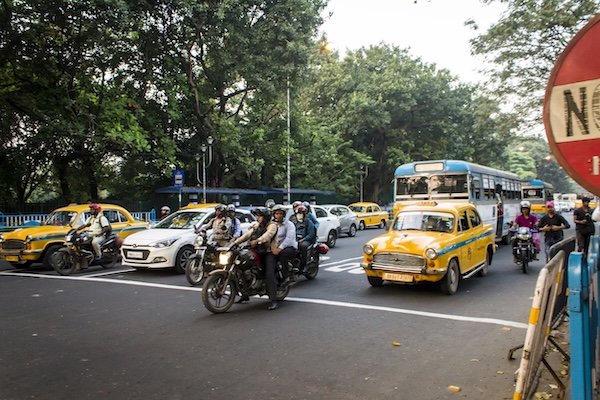.png)
BasisPoint Breaking Views Live During Budget 2025
As Finance Minister Nirmala Sitharaman delivers the Union Budget 2025, several key announcements are shaping the government’s economic priorities. Our key insights, filed on the go while she speaks in Parliament, capture the first take on her policy and development moves.


Groupthink is the House View of BasisPoint’s in-house columnists.
February 1, 2025 at 5:10 AM IST
1515 IST
Climate change fight takes a back seat
A mere ₹34.1 billion has been allocated to the Ministry of Environment, Forest and Climate Change in the 2025-2026 budget, reflecting only a marginal increase from ₹33.3 billion in 2024-2025 and ₹32.3 billion in 2023-2024. The trend of modest budget allocations signals India's weak commitment to its climate change goals, especially amid escalating environmental challenges.
--By Anuradha Altekar, an ESG and integrated reporting specialist.
1255 IST
Poll Flavour in Union Budget 2025
For the second consecutive year, Bihar has received special attention in Finance Minister Nirmala Sitharaman’s budget, likely aimed at influencing voters ahead of the state’s assembly elections later this year. The Budget proposes a Makhana Board to boost the production, processing, and marketing of makhana, with Bihar accounting for 90% of national output. A National Institute of Food Technology, Entrepreneurship, and Management is planned for the state, along with additional seats at IIT Patna and funds to expand Patna airport. These announcements follow last year’s development package after the BJP formed the government with Nitish Kumar’s Janata Dal (United).
1217 IST
Fast-Track Mergers to Boost Corporate Restructuring
India's Union Budget 2025 expands the scope of fast-track mergers under company law, building on recent regulatory reforms to accelerate corporate restructuring and attract global investments. The government may broaden the definition of companies eligible for fast-track mergers beyond start-ups, small companies, and holding-subsidiary structures to include mid-sized firms and cross-sector entities. It remains to be seen whether tax-neutral treatment for reverse flipping—foreign start-ups merging into Indian arms—and lower capital gains tax provisions will be introduced. Faster mergers will enhance corporate agility and attract foreign capital, notably from Global Capability Centres.
--By Krishnadevan V, Editorial Director, BasisPoint Insight
1212 IST
Tax Burden Eased with Higher TDS Limits, Boosts Compliance
Raising the annual TDS limit from ₹420,000 to ₹600,000 will ease tax compliance for many individuals. The higher deduction limit for senior citizens, increased from ₹50,000 to ₹100,000, offers greater financial relief for the elderly. Additionally, imposing higher TDS rates on non-PAN transactions will encourage compliance and enhance tax collection efficiency. These measures aim to create a more favourable environment for both businesses and individuals, fostering economic growth and promoting financial inclusion.
--By Alok Kumar Mishra, Professor, University of Hyderabad
1200 IST
Targets Fiscal Deficit Cut to 4.4% by FY26
The government’s commitment to long-term economic stability and fiscal discipline is reflected in the projected fiscal deficit of 4.8% for 2025-2026, with a target to reduce it to 4.4% by 2026-2027. This reduction signals prudent public finance management, boosting investor confidence. Over time, the debt consolidation plan will lower borrowing costs, curb inflationary pressures, and reduce the overall debt burden. It also marks a shift towards more sustainable public spending, safeguarding fiscal resources for critical investments in social welfare, infrastructure, and economic growth—contributing to a stronger, more resilient economy in the long run. The breakdown within the expenditure groupings will be key. Further details are awaited.
1155 IST
100% FDI in Insurance to Boost Growth and Innovation
Foreign investment will surge with the increase in the insurance sector’s FDI limit from 74% to 100%, enhancing the industry’s financial stability and growth potential. Full foreign ownership will allow global insurers to introduce advanced technologies, adopt international best practices, improve operational efficiency, and inject fresh capital. This will foster greater competition, driving a wider range of innovative products and services in the Indian insurance market. Consumers will benefit from better coverage options, competitive premiums, and improved customer service. Overall, the insurance sector is poised for faster growth and expanded market access.
1154 IST
National Depository, Gyan Bharatam Survey to Boost Education
The establishment of a National Depository for Knowledge Systems and the Gyan Bharatam Survey are key measures to improve India’s educational system. By gathering data on academic institutions, the survey will help policymakers identify gaps in access and the quality of education. The National Depository will serve as a central repository for research, academic resources, and information exchange, enabling quicker access to educational materials. This initiative will empower researchers and students, enhance resource management, and promote inter-institutional collaboration. Collectively, these measures will raise educational standards, foster innovation, and support data-driven academic policy decisions.
--By Alok Kumar Mishra, Professor, University of Hyderabad
1153 IST
Big Boost for MSMEs to Drive Growth
Budget 2025 prioritises MSMEs as a key growth pillar, with increased investments for their development. The credit guarantee cover for MSMEs will double from ₹50 million to ₹100 million, unlocking ₹1.5 trillion in additional credit over five years. To support technology upgrades and improve capital access, investment and turnover limits for all MSMEs will rise by 2.5 times and 2 times, respectively. Customised credit cards are also proposed for micro-enterprises. These measures aim to strengthen MSMEs, fostering innovation, expansion, and economic resilience—a significant step towards empowering small businesses.
--By Debashis Acharya, Professor, University of Hyderabad
1146 IST
Extends Health Cover, Social Security to 10 Million Gig Workers
In Budget 2025, Finance Minister Nirmala Sitharaman took a crucial step towards formalising India’s gig economy by announcing health insurance, ID cards, and official registration for gig workers. Around 10 million online platform workers will be covered under the Pradhan Mantri Jan Arogya Yojana, ensuring access to essential healthcare services. The government will also facilitate their registration on the e-Shram portal, providing a social security safety net. As gig work expands, this initiative signals a shift towards stronger worker protections. While a welcome move, long-term policies on fair wages and benefits will be key to truly uplifting India’s gig workforce.
--By Arti Singh, an independent journalist focused on fintech.
Gig and digital economy may catch fancy of taxmen
1142 IST
Assam Urea Plant to Boost Self-Sufficiency
As part of the government’s push for urea self-sufficiency, Budget 2025 announced the setting up of a urea plant with an annual capacity of 1.27 million metric tonnes at Namrup, Assam. This initiative aligns with India’s target to end urea imports by the end of 2025, reducing dependency on global markets and enhancing fertiliser security. The plant will not only strengthen domestic production but also support the agricultural sector with a stable supply, while contributing to regional economic growth through job creation and infrastructure development.
--By Krishnadevan V, Editorial Director, BasisPoint Insight
1138 IST
Boosting MSMEs Through the National Manufacturing Setup
To support MSMEs, the Union Budget 2025 proposes the creation of a National Manufacturing Setup that will offer tax breaks, integrated infrastructure, and easier access to loans. This initiative aims to enhance the competitiveness of MSMEs by fostering an environment conducive to innovation and manufacturing. It is expected to boost industrial output, generate jobs, and drive regional economic growth. The setup will simplify compliance and expand financial access, enabling MSMEs to scale operations, reduce costs, and improve product quality. Ultimately, this will strengthen India’s industrial capabilities, fuelling economic growth and enhancing global competitiveness.
--By Alok Kumar Mishra, Professor, University of Hyderabad
1136 IST
Budget Push to Modernise Agriculture
The Budget’s focus on agritech, irrigation, and crop diversification aims to boost productivity, sustainability, and climate resilience. Increased agritech investment will drive precision farming, cutting input costs and improving yields. Expanded irrigation capacity ensures water security, reducing monsoon dependence. Support for crop diversification helps farmers mitigate price volatility and climate risks, enhancing incomes. The push for sustainable and organic farming curbs environmental degradation. These measures not only modernise agriculture but also strengthen food security, rural employment, and economic stability, making the sector more adaptive to climate change in the long run.
1130 IST
India Post Pitched Against Logistics Unicorns
The proposal to transform India Post Payments Bank (IPPB) into a major public logistics entity by leveraging 150,000 rural post offices aims to boost the rural economy and strengthen last-mile connectivity—crucial for e-commerce expansion in remote areas. Success will hinge on technology integration, public-private partnerships, and infrastructure upgrades. Launched in 2018, IPPB had already onboarded over 90 million customers as of March 2024, demonstrating the potential of modernizing postal services. With the right strategy, India Post could emerge as a key logistics player, efficiently bridging urban-rural supply chains. But will it also emerge as a challanger to private logistic unicorns?
--By Arti Singh, an independent journalist focused on fintech.
1117 IST
Migration Isn’t a Problem—It’s a Growth Engine
Finance Minister Nirmala Sitharaman’s view that migration should be optional, not mandatory, reflects a hopeful sentiment—implying rural areas will soon have robust services. Yet, migration remains essential for economic dynamism in the near term. Instead of curbing it, policymakers should focus on making migration smoother. The Centre and states must invest in infrastructure beyond metros, targeting tier-II and tier-III cities to create employment hubs. Improved housing, transport, and social security for migrant workers can ease transitions. Migration isn’t just a necessity; it’s a growth engine that, if managed well, can balance regional development.
To counter slowdown, India needs bold approach, must build entire new cities not just roads

